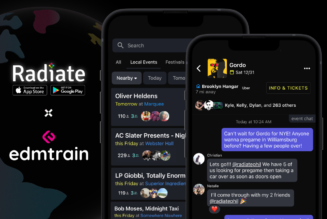A new study conducted by Harbourside Artist Management and funded by the Arts Council found that many music professionals don’t disclose their non-visible disabilities to employers or colleagues.
The study, which surveyed nearly 150 people in the music industry who have a disability or long-term health condition, found that 71% of the participants stated their disability was non-visible. Of those 71%, 88% mentioned they “sometimes” or “never” disclose their condition to those they work with. 69% admitted they believe this non-disclosure put their health and safety at risk.
The participants also stated they don’t disclose the information out of fear it would make them seem less capable, receive less work, or precipitate discrimination. According to a previous Arts Council study, 1.8% of music professionals identified as having a disability.
Recommended Articles
“With my own lived experiences I was keen to embark on this research,” said Harbourside Artist Management founder Ben Price, who has a non-visible disability. “I myself have a disability that I didn’t feel able to disclose, and I wanted to explore the perspectives of others in a similar position, as well as solutions of what can be done to improve disabled representation in the music industry.”
Price’s goal with the research, he says, is to encourage and empower people with disabilities in the music industry.
“This aim is not necessarily to ask more people to disclose their disabilities but to encourage an environment where those conversations are normalised and more people with a disability or long-term health condition can be welcomed into the industry—at all levels—without barriers,” he added.
In addition, music professionals with disabilities or long-term health conditions are severely underrepresented in the music industry. 90% of participants agreed there is a lack of visibly disabled people, which contributes to the under-representation.
79% said a lack of opportunities during their youth were also a factor in the under-representation. 73% pointed at the music industry’s demand for extended work hours and not providing the flexibility professionals with disabilities may need.










